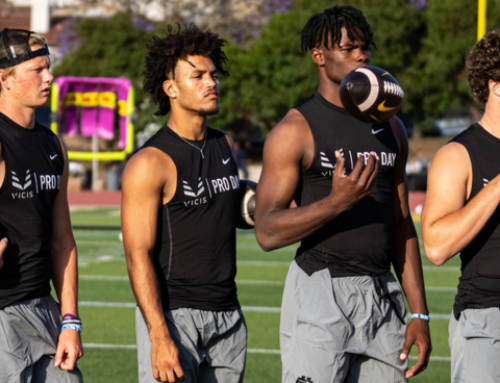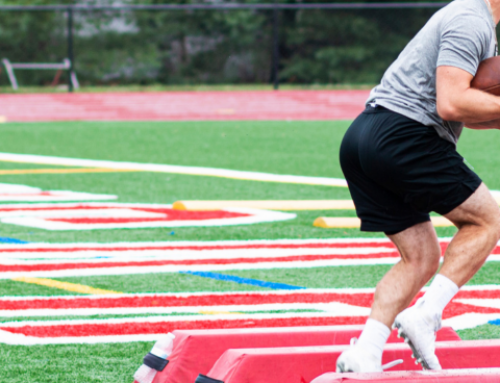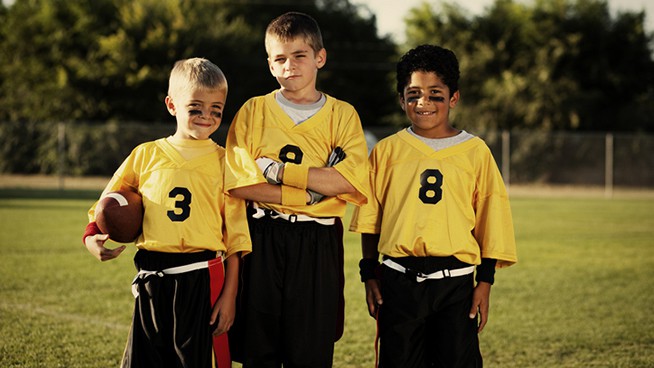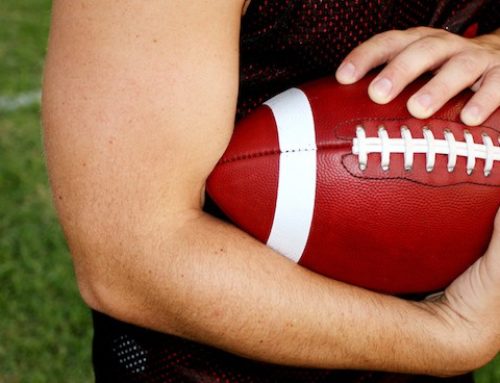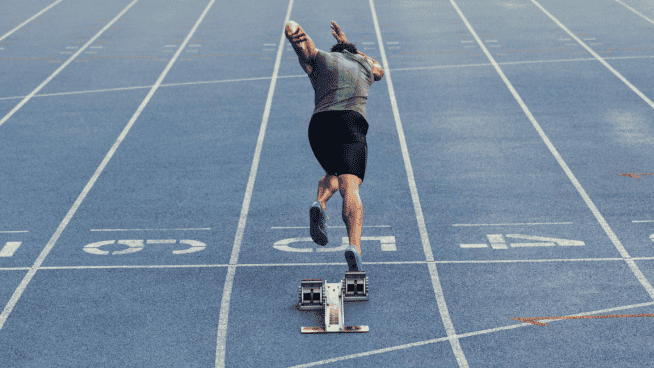Defend Your Mouth
In STACK’s discussions with pro athletes about training gear, one item is frequently left out of the conversation—although a majority of pro athletes use it every day. It’s not cleats, bats, balls or shoes: it’s the mouth guard.
Protecting your perfect smile is one benefit of the guard, but for those who may not know why coaches and team doctors insist on its necessity, mouth guards are actually designed to help prevent concussions.
According to The Comstock Center for Public Health Research and Prevention, last year an estimated 130,000 concussions occurred during the high school sports season. Comstock also discovered that concussions were involved in one out of every 10 sports-related injuries.
Concussions can occur due to head trauma—a bump on the head from a hard foul, a kick in the chin during a soccer match, helmet-to-helmet contact in football—you name it.
When it comes to mouth guards, comfort is key, and the only way to achieve it is to get one custom-fitted. At least two options are available: visiting your dentist, who will take an impression for a custom mold; or buying one from company that specializes in custom guards, like Defender Mouthguards.
Defender president Joe Pipolo says, “If you’re able to wear a mouth guard like ours, which keeps the lower jaw slightly open and in a slightly forward position, it gives you that pocket of protection, limiting the risk of concussion from a blow. A protective mouth guard like ours gives you a little bit of cushion between the chewing surfaces of the teeth while keeping your lower jaw out of the socket at the base of the brain, which is where you get the concussion from impact. A mouth guard should be your best defense against sports-related dental injury. [But] that’s only true if it’s in your mouth.”
Case in point: Patrick Kane of the Chicago Blackhawks, who is notorious for chewing on his mouth guard or letting it hang out the side of his mouth. If it doesn’t fit comfortably in their mouth, athletes will find a spot other than their mouth to place the guard.
“The Defender Mouthguards fits comfortably, and it’s your best defense against sports-related dental injury,” Pipolo continues. “But here’s the bonus with ours: because we can control the thickness of the cushion on the chewing surface of the teeth, we have a better chance of limiting the risk of concussions.”
Defender representatives travel year-round visiting schools and molding mouth guards for teams and athletes of all ages. For those who miss the traveling caravan of experts, the company also has an easy-to-use home kit that walks athletes step-by-step through the impression-making process to receive a custom mouth guard.
Pipolo says his company is so focused on helping to prevent concussions that they are offering free custom-fit mouth guards to every starting quarterback in high school and college.
For ordering information and more on Defender Mouthguards, head to www.defendermouthguards.com.
Bottom line: losing a tooth is bad enough, but brain trauma has lasting consequences. Wear a mouth guard.
RECOMMENDED FOR YOU
Defend Your Mouth
In STACK’s discussions with pro athletes about training gear, one item is frequently left out of the conversation—although a majority of pro athletes use it every day. It’s not cleats, bats, balls or shoes: it’s the mouth guard.
Protecting your perfect smile is one benefit of the guard, but for those who may not know why coaches and team doctors insist on its necessity, mouth guards are actually designed to help prevent concussions.
According to The Comstock Center for Public Health Research and Prevention, last year an estimated 130,000 concussions occurred during the high school sports season. Comstock also discovered that concussions were involved in one out of every 10 sports-related injuries.
Concussions can occur due to head trauma—a bump on the head from a hard foul, a kick in the chin during a soccer match, helmet-to-helmet contact in football—you name it.
When it comes to mouth guards, comfort is key, and the only way to achieve it is to get one custom-fitted. At least two options are available: visiting your dentist, who will take an impression for a custom mold; or buying one from company that specializes in custom guards, like Defender Mouthguards.
Defender president Joe Pipolo says, “If you’re able to wear a mouth guard like ours, which keeps the lower jaw slightly open and in a slightly forward position, it gives you that pocket of protection, limiting the risk of concussion from a blow. A protective mouth guard like ours gives you a little bit of cushion between the chewing surfaces of the teeth while keeping your lower jaw out of the socket at the base of the brain, which is where you get the concussion from impact. A mouth guard should be your best defense against sports-related dental injury. [But] that’s only true if it’s in your mouth.”
Case in point: Patrick Kane of the Chicago Blackhawks, who is notorious for chewing on his mouth guard or letting it hang out the side of his mouth. If it doesn’t fit comfortably in their mouth, athletes will find a spot other than their mouth to place the guard.
“The Defender Mouthguards fits comfortably, and it’s your best defense against sports-related dental injury,” Pipolo continues. “But here’s the bonus with ours: because we can control the thickness of the cushion on the chewing surface of the teeth, we have a better chance of limiting the risk of concussions.”
Defender representatives travel year-round visiting schools and molding mouth guards for teams and athletes of all ages. For those who miss the traveling caravan of experts, the company also has an easy-to-use home kit that walks athletes step-by-step through the impression-making process to receive a custom mouth guard.
Pipolo says his company is so focused on helping to prevent concussions that they are offering free custom-fit mouth guards to every starting quarterback in high school and college.
For ordering information and more on Defender Mouthguards, head to www.defendermouthguards.com.
Bottom line: losing a tooth is bad enough, but brain trauma has lasting consequences. Wear a mouth guard.

